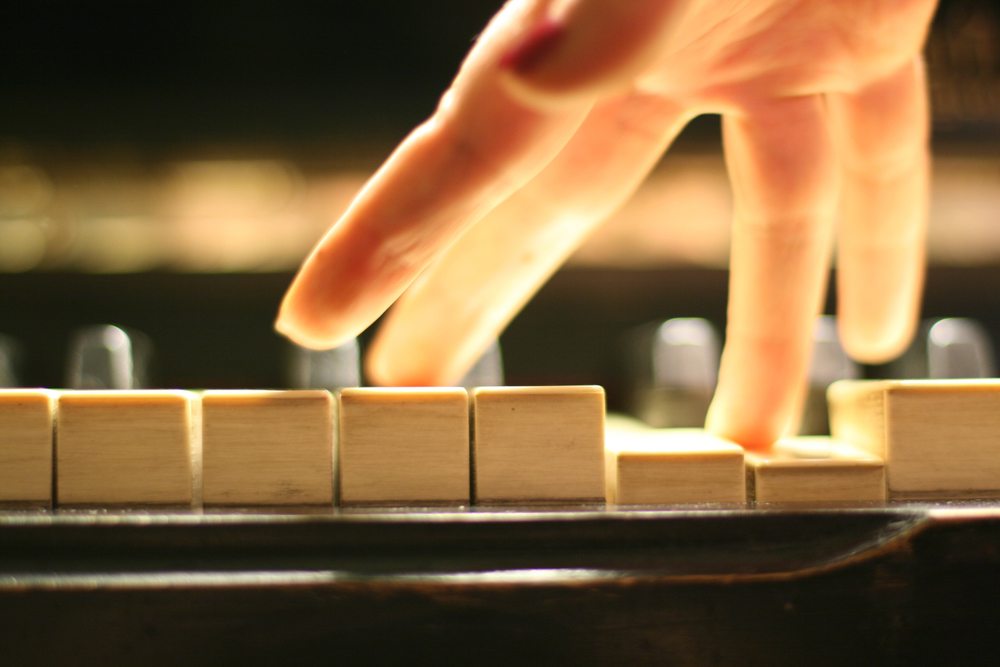Let me tell you a quick story. I once played with a jazz band that rehearsed in a rental studio.
This place had a piano that obviously wasn’t maintained very well. A thick layer of dust and grime coated the keys. There were dings and dents everywhere.
It sounded alright; they obviously sprung for a tuning every once in a while, but I noticed something peculiar. As I was warming up, whenever I took my foot off the sustain pedal, there was this loud metallic clunk, followed by a ghostly reverberation of the strings. It was an interesting sound, to say the least. Thank goodness it wasn’t too noticeable with all the other instruments playing.
This was simply a problem of the dampers smacking back against the strings instead of falling gently upon them.
These things happen over time. Parts weaken, wear out, or loosen. However, just because things break down eventually doesn’t mean you can’t work to keep things in tip-top shape. This article will focus on a few things you can do to help keep your piano live a long and healthy life.
Getting a Tune-Up – Literally
Think of this as your first and last line of defense. Regularly scheduled tuning is essential to your piano’s overall performance.
Read that sentence again.
If piano tuning is overlooked, so therefore will most forms of maintenance be overlooked as well. It is a very basic way to ensure that everything will run smoothly and sound its best.
Your tuner can hear other things in the works besides the frequencies of the notes. He or she can tell when something doesn’t sound right. You can feel free to mention things you’ve noticed as well in case those things are overlooked.
What is meant by “regularly scheduled tuning”? Pianos should be tuned at least twice a year: Once in mid-autumn, and once in mid-summer. This coincides with the first drastic temperature/climate changes, after the heat or the air conditioner has been turned on for about a month or so.
Your instrument was designed to sound good. Harmony is what you get when all the parts of a system are working equally, complimentary, and at their best.
Location, Location, Location
Your piano should be located in a room where there is fairly even temperature and humidity control. Fluctuations in humidity can cause the soundboard to distort or crack.
Extreme moisture can cause warping and rust. Extreme dryness can also be detrimental by causing wood joints to weaken. If you really want the best protection, use an air conditioner in summer and a heater with a humidifier in the winter.
- Remember: Sunlight is good for the piano player, not the piano. Sunlight can destroy your piano’s finish as well as cause damage to the pinblock, soundboard, and other areas.
- Never place a piano up against a wall. Leave about a foot of space between. You don’t want those excess reverberations causing more problems than you bargained for.
Keeping It Clean – Part I: The Cabinet
The piano cabinet may seem like a separate entity from the rest of the instrument. After all, nothing about the cabinet is making the music, right?
Nothing could be further from the truth.
The cabinet is part of the piano, otherwise it wouldn’t be there. It is just as essential to the performance of the instrument and serves just as much function as another of the other multitude of parts.
Keeping the cabinet clean has the same effect as keeping the keys clean. The more you can prevent dust, grime, and oils from your fingers from damaging the exterior, the more you can help keep the delicate interior protected from these same harmful substances.
Here’s how to care for the two main types of piano finishes you generally come across.
- Lacquer finishes – Use a polish that has been designed for use on delicate furniture. I’m sorry to have to say this, but you get what you pay for. Cheap polish is a no-no. And never spray directly onto the piano. You run the risk of hitting parts you should hit. Never a good idea. Spray a little on a lint-free cleaning cloth. Never place drinks on top of the piano. Your piano is not a coaster. Likewise, keep plants off the instrument as well. Plants need water, and water is a piano’s worst enemy.
- Polymer finishes – The beauty of polymer is that it does not require waxing. A clean, lint-free cloth – dry – works best to remove dust or light smudges. For more intense jobs, you need only a dilute solution of mild detergent, and only enough to dampen – not wet – the cloth. Make sure you keep a dry cloth on hand for this job, as you’ll want to remove any streaks immediately after wiping with the damp cloth.
Keeping It Clean – Part II: The Keys
I don’t care how tidy you are, if you’re human, your fingers have natural oils that rub off onto the keys. Your house may be spotless, but dust and grime will accumulate eventually.
An air purifier can minimize the amount of dust present, but it will never stop it altogether. Keep that lid closed whenever the instrument is not in use. You can feel free to do some light dusting across the keys with a damp cloth. However, it’s usually best to ask a technician to take care of this during regularly scheduled maintenance.
Use Your Eyes, Ears, and Fingers To Diagnose
I’ve saved the most important tip for last. It’s a long one, but there’s good information here, I promise. And it involves you.
Pianos, like our bodies, can tell us when they’re not feeling their best. The trick lies in listening carefully, both literally and figuratively, to what your piano is trying to tell you.
For example, when I hit a Bb7 chord, I know what to expect. I’ve played enough Bb7 chords to know what they’re supposed to sound like. If hit a Bb7 chord and hear something I’m not used to hearing, I’m going to raise an eyebrow.
Listen carefully. Does your piano have a “saloon” sound? At any moment does it sound as if Bad Bart is going to come swaggering through the double doors demanding to see the sheriff? Or is there a slight buzzing noise, like there’s a bee caught somewhere in the works? Notes should sound clear and crisp, not stale and muted.
You can tell a piano’s malady by the feel as well. It should feel as if the music is coming directly out of your fingers. This is a description of good piano action. The piano’s action should never feel strained, or tight. There shouldn’t be any dead notes or sticky keys. The release of a pedal should not be heard within the piano’s framework. The keys should all be at an even level, with no one key raised above the others.
Think of it this way: Do you pay attention when your car’s engine knocks, or are you one of those people who ignores strange noises under the hood, thinking it’ll get better on its own? If you’re one of the latter, you’ve probably already found out how hard that practice can hit you in the wallet.
Keep your ears open and your fingers feeling. The following is a list of common problems and 
- Saloon piano sound – Strings are badly out of tune. Schedule a routine tuning an string check.
- Buzzing sound when notes are struck – Sympathetic resonance occurs when something is loose somewhere in the works and sound waves cause it to vibrate. It could be something as simple as a loose hinge in the key cover or a loose screw in the lid, or it could be something a little more serious or buried within. Tell your piano technician about this problem when you have your piano tuned, otherwise he or she may overlook it.
- Dead notes – Could be caused by broken action. As you may know, piano action is comprised of many intricate parts working together in congruence. If one thing goes, the whole thing goes. Damaged action isn’t difficult to repair in principle, but it does take the work of someone who knows their way around, not to mention a pretty specialized set of equipment. I’ve seen them. They don’t look like anything you can just run and pick up down at the hardware store.
- Several adjacent notes are dead – Something could be laying across the strings, blocking the hammers from striking them. It could be a ballpoint pen, a ruler; or in my case, one of my kids once dropped an action figure down there. A piano can a treacherous place for a Jedi knight.
The lesson learned here is a simple one after all: The best tip for piano maintenance is to play the instrument regularly. I suppose I don’t need to tell you that this happens to be my personal favorite of them all. It’s maintenance that I’m happy to perform every day of my life.
What are your best practices for maintaining good piano health? Leave a comment below and share them with us.








It would be a good idea for everyone to know to keep the lid closed when the piano is not in use. That way, dust doesn’t get between the keys. That would just be difficult for you to try and clean. Plus, I am sure that dust and dirt aren’t going to be good for it!
I liked what you said about how a piano should sound crisp and clear not muted and it can indicate something wrong and the keys shouldn’t be sticky or sit up. My brother really likes to play the piano and he wants to make sure that he can continue to play when he moves. Making sure that it is tuned by a professional could be really useful for him and make sure that it will sound really pretty.
We recommend twice a year at least, especially if you’re playing it a lot! Taking care of your piano like you would a car keeps it sounding its best for longer! Thanks for the comment.
It’s great that you talked about how the sun can really hurt the finish of the piano. My spouse and I are thinking about getting a new piano for our kids to play on. We want to care for it properly so we need to follow your advice and do regular maintenance.
Thanks for reminding me to keep my piano away from any kind of moisture. My aunt has a grand piano that I inherited when she passed so I’ve been looking up ways on how to properly maintain them. I’ll keep these tips you mentioned in mind once I find a service that can help me move the piano cross-country from her house to mine.
My piano hasn’t been sounding right, and I’m not sure how to fix it. It makes sense that I would want to get a professional to help me out with this. They would be able to tune it properly.